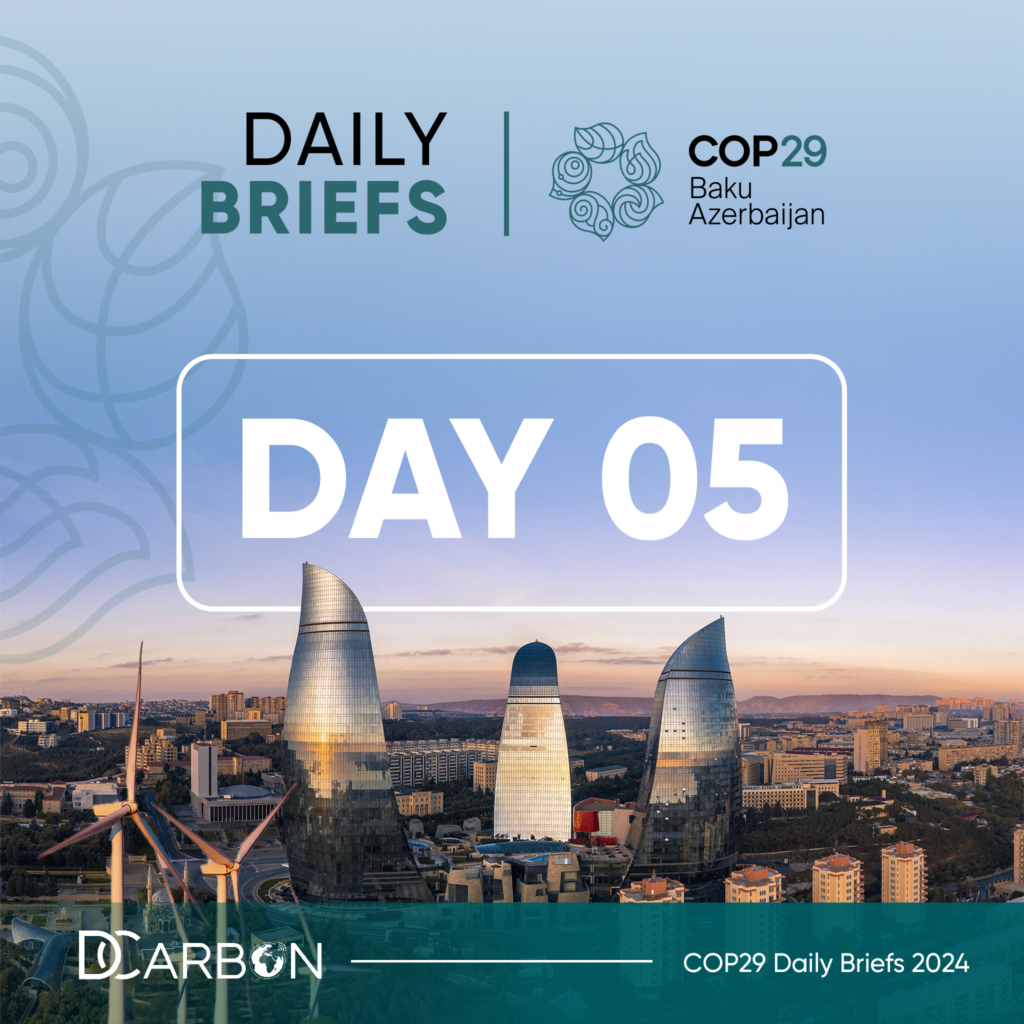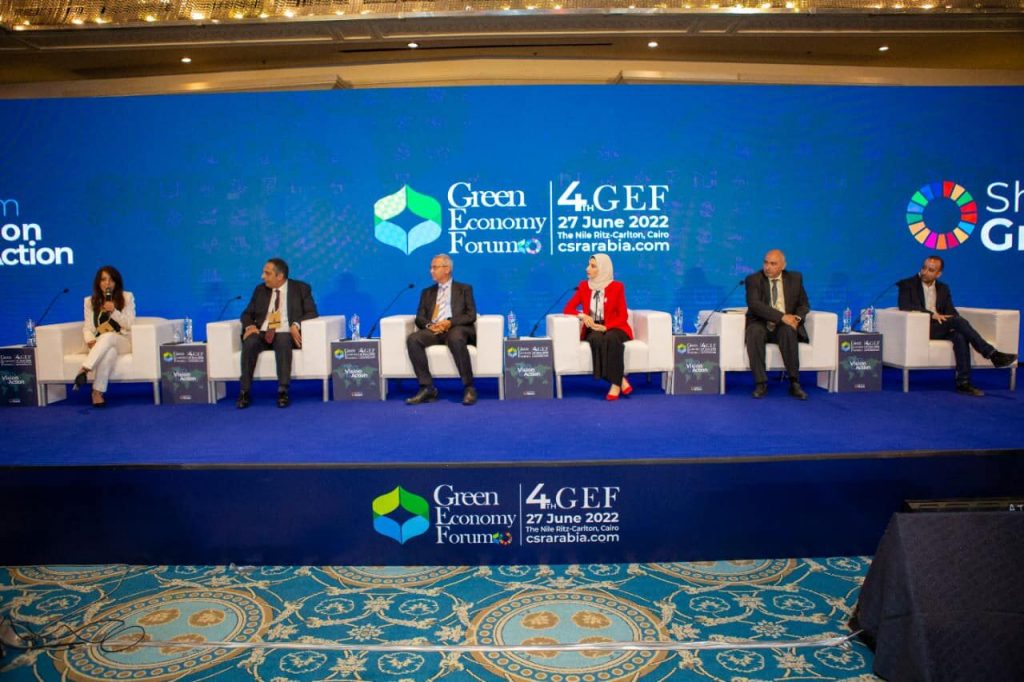Blue Zone
IMEO Ministerial Meeting: Advancing Methane Emissions Data Transparency
The German government and the European Commission co-hosted a ministerial to promote the mission of the United Nations Environment Programme’s (UNEP) International Methane Emissions Observatory (IMEO) meeting at COP29. The event stressed the importance of open, reliable, and actionable data in transforming global methane reduction ambitions into concrete actions. High-level representatives from international organizations, industry, and civil society discussed data-driven solutions for methane mitigation and the necessity for decisive actions from both companies and governments. A refreshed version of IMEO’s methane data platform was shown, during the launch of the 2024 “Eye on Methane” report, providing plausible insights into global methane emissions.
EU Methane Regulation and Partnerships: Balancing Incentives and Obligations
The European Commission and the Clean Air Task Force organized a session titled “Carrots and Sticks: The EU Methane Regulation and Partnerships.” This event discussed the EU’s Methane Regulation, which came into force in August 2024, introducing new rules that will gradually require data transparency and emissions’ reduction from its trading partners. Discussions centered on the regulation’s implications for international partnerships and the balance between incentives and commitments in methane emissions reduction.
SOFAZ Discusses ESG Integration in Investment Portfolio
The State Oil Fund of the Republic of Azerbaijan (SOFAZ) hosted an event within COP29, focusing on the integration of Environmental, Social, and Governance (ESG) principles into its investment portfolio. The session highlighted SOFAZ’s commitment to responsible investment practices and its role in supporting the global climate agenda through sustainable financial strategies.
Global Carbon Budget Presentation: Focus on the Global South
The Global Carbon Project presented its annual report on efforts to meet the 1.5°C target. The session, titled “Climate Science: The 2024 Global Carbon Budget and The Global South,” discussed the proximity to the 1.5°C threshold and evaluated the progress of rainforest nations in reducing deforestation over the past year.
Green Zone
Launch of Green Growth Portal at COP29: A Global Step Toward Sustainable Development
Azerbaijan’s Ministry of Economy, in collaboration with Harvard’s Growth Lab, launched the Green Growth Portal, a web tool designed to help countries identify green growth opportunities and guide policymakers in their development at COP29. Mikayil Jabbarov, Azerbaijan’s Economy Minister, stressed the portal’s importance for global cooperation in achieving sustainable development in his remarks. He also stressed the need to integrate climate issues into economic planning and supply chain policies.
Kanan Najafov, Vice President of SOCAR, discussed the company’s efforts towards its “net-zero” target, focusing on decarbonization, energy transition, and low-carbon solutions. Ricardo Hausmann, Professor at Harvard Kennedy School, highlighted the role of reducing carbon emissions and promoting renewable energy to address climate challenges.
Timothy Cheston, Senior Manager at the Growth Lab at the Center for International Development at Harvard University, provided an overview of the portal that is anticipated to be fully operational by 2025. The portal will be freely accessible to users worldwide. The event tackled various sustainability topics and was attended by representatives from the public and private sectors, international organizations, and academia.
SOCAR Plans to Decarbonize Offshore Facilities and Explore Geothermal Energy
The State Oil Company of Azerbaijan (SOCAR), in collaboration with China Energy, is set to begin decarbonizing its offshore facilities, as part of its broader sustainability efforts. SOCAR Green and China Energy Overseas Investment Co. Ltd. have signed an agreement to build a 160 MW solar power plant in the Fuzuli district of Azerbaijan. Additional agreements for renewable energy projects have been signed with China Energy and China Datang Co. Ltd.
In another key project, SOCAR, in collaboration with BP, has begun construction on a 240 MW solar power plant in the Jabrayil district. This plant will play a major role in decarbonizing the Sangachal terminal, the largest oil and gas terminal in the Caspian region. This is the first phase of SOCAR’s plan to reduce its carbon footprint, with the second phase focusing on decarbonizing its offshore facilities.
SOCAR has also started collaborating with the Abu Dhabi National Oil Company (ADNOC) as part of the Oil and Gas Decarbonization Charter.
In addition to these efforts, SOCAR is exploring geothermal energy opportunities in Azerbaijan. The company has signed an agreement with Baker Hughes to develop geothermal resources. By drilling geothermal wells, SOCAR aims to access high-temperature water for power generation and lower-temperature resources for heating. The company will conduct studies throughout the year to assess these opportunities.
SOCAR also aims to eliminate associated gas flaring at the Baku Oil Refinery by 2026, supported by a legally binding agreement with Baker Hughes. This marks a significant step in reducing emissions at its facilities.
Beyond Azerbaijan, SOCAR is implementing renewable energy projects internationally. These include a 55 MW wind power plant in Türkiye and solar energy transitions in Georgia, Romania, and Switzerland.
SOCAR, Masdar, and ACWA Power Partner for 3.5 GW Offshore Wind Project in Azerbaijan
SOCAR, the State Oil Company of the Republic of Azerbaijan, Masdar Company of the United Arab Emirates (UAE) and ACWA Power of Saudi Arabia have signed a memorandum of understanding during COP29 on cooperation to develop 3.5 gigawatts (GW) of offshore wind projects in the Azerbaijan section of the Caspian Sea. This agreement marks the launch of Azerbaijan’s first offshore wind power plants and builds on previous renewable energy projects in Nakhchivan, which totaled 500 MW. The partnership highlights a significant step forward in expanding renewable energy infrastructure in Azerbaijan, aspiring to boost the country’s clean energy competence and foster greater international cooperation in the renewable sector.
Azerenerji JSC and Ansaldo Energia Sign MOU for Green Energy Projects at COP29
Azerenerji JSC, Azerbaijan’s largest electricity producer, and Ansaldo Energia, a global leader in power generation, have signed a Memorandum of Understanding (MOU) during COP 29 to strengthen their collaboration on energy transition and sustainability projects in Azerbaijan. The agreement outlines several key initiatives, including the joint development of environmentally efficient power equipment, the establishment of a hydrogen production plant in Azerbaijan, and the implementation of hydrogen-fired power plants. The MOU also covers staff training, knowledge exchange, and joint participation in projects such as carbon capture and storage (CCS), nuclear small modular reactors (SMR), and hydrogen energy storage systems.
Pillars of the Green Transition” Panel at COP29
The “Pillars of the Green Transition” panel at COP29 addressed crucial challenges and opportunities in advancing global climate action, with a focus on the significant gap in climate financing. Despite a 15-year-old pledge by wealthy nations to provide $100 billion annually to support developing countries’ clean technology transitions, this commitment remains unmet. Experts stressed the growing global need for climate financing, now estimated at $5 trillion annually to meet Paris Agreement targets, and called for increased financial support, particularly through mechanisms like carbon pricing during the panel. The panel further tackled the potential impact of the upcoming U.S. presidential election outcomes on climate policy, noting concerns that a shift in leadership, especially a return of American President Trump, could regress the achieved results during President Biden’s term, such as rejoining the Paris Agreement and enforcing climate regulations. This change could influence global commitments, with other nations potentially reducing their efforts. Panelists acknowledged positive shifts in global clean energy markets, including solar energy becoming the cheapest power source, along with growing investments in clean technologies like battery storage and green hydrogen.
The panel also highlighted the progress of large-scale clean energy projects, such as Saudi Arabia’s Neom Green Hydrogen Project, which is 60% complete and expected to produce the world’s largest hydrogen facility by 2026. While hydrogen is an emerging technology, demand is expected to surpass supply in its early years. Despite challenges, the project demonstrates global efforts to reduce reliance on fossil fuels. The panel called for more international cooperation and investment to address the climate financing gap and support emerging clean technologies, ensuring the green transition stays on track.
Climate Innovation Zone
The COP29 Climate Innovation Zone event’s agenda in Baku, was packed with impactful discussions, high-level panels, and announcements focusing on transformative solutions for climate change mitigation and adaptation on November 15, 2024. As the summit progresses is reaching its conclusion there is a heightened urgency to translate commitments into actionable strategies that can yield tangible outcomes before the critical 2030 climate targets.
Hydrogen Transition Summit: Scaling Clean Energy Solutions
Policymakers, and financial experts discussed the future of green hydrogen during the Hydrogen Transition Summit that brought together industry leaders. This summit stressed hydrogen’s role as a key enabler for decarbonizing hard-to-abate sectors like steel, cement, aviation, and maritime transport.
Speakers from companies like Siemens Energy, Mitsubishi Power, and Hydrogen Europe demonstrated their plans to scale up hydrogen production infrastructure, supported by innovative financing models that aim to reduce costs and enhance the adoption process. Industry leaders such as ArcelorMittal and Deutsche Bank stressed the importance of structured investments to make green hydrogen more competitive. The focus was on creating public-private partnerships to unlock the estimated $1 trillion required to fully integrate hydrogen into global energy systems by 2050. It was also noted that the International Renewable Energy Agency (IRENA) and the World Bank have joined forces to support developing countries in building hydrogen supply chains, pursuing equitable access to this clean energy resource. The summit tackled innovative financing approaches, such as smart offtake agreements, which aims to secure long-term commitments and attract sustainable investments.
Agri-Food Systems Summit: Addressing Climate and Food Security
The Agri-Food Systems Summit focused on sustainable agriculture practices. Agriculture accounts for nearly 20% of global emissions; thus, there is an urgent need to transform the sector to align with the 1.5°C target. Today’s sessions explored how climate finances can catalyze innovations in agricultural supply chains to reduce emissions, improve soil health, and protect biodiversity.
Key speakers from the Food and Agriculture Organization (FAO) and private sector leaders discussed integrating climate-smart agriculture practices, such as regenerative farming and precision agriculture can that significantly cut emissions while increasing food resilience. The mentioned a-$500-million fund aimed at promoting sustainable Agri-tech solutions in developing countries, stressing the need for both financial and technological support to transform global food systems.
Urban Decarbonization and Smart Cities Initiatives
Urban resilience was amongst the major themes discussed at COP29. The Climate Innovation Zone showcased projects that aimed at reducing the carbon footprints of cities that are responsible for nearly 70% of global emissions. The focus was on promoting efficiency, electric public transport, and integrating renewable energy into urban grids. Representatives from the C40 Cities Climate Leadership Group shared best practices on achieving net-zero targets, especially in megacities in the Global South, where rapid urbanization poses one of the unique challenges.
The discussions stressed the need for updated Nationally Determined Contributions (NDCs) that focused on the built environment, with new tools like the World Green Building Council’s NDC Scorecard introduced to benchmark progress. One remarkable project discussed was Baku’s pilot initiative to implement smart city technologies that included utilizing AI to enhance energy management in municipal buildings and promoting green spaces to absorb urban heat. This initiative aligns with the city’s broader strategy to be carbon-neutral by 2040.
Mobilizing Climate Finance: Trillions for a Greener Future
The Sustainable Innovation Forum sessions highlighted the critical role of climate finance. Experts reiterated that the financial sector must triple annual investments in renewables to $1.5 trillion by 2030 to meet global climate targets. Discussions included innovative funding models such as blended finance, whereby public funds are used to de-risk private investments in climate projects, especially in emerging markets. A new partnership between Standard Chartered Bank and several African nations to launch a $2 billion sustainable infrastructure fund was also discussed.
The forum highlighted the importance of financial transparency and accountability, especially after the mixed results of previous climate finance pledges. It was mentioned that developed countries ought to fulfil their promise to mobilize $100 billion annually to support climate adaptation and mitigation in developing countries, a commitment that remains partially unmet.
Cross-Sector Collaboration for a Resilient Future
The need for multisectoral collaboration to achieve the Paris Agreement targets was discussed on C0P29. Participants from governments, businesses, and NGOs discussed establishing partnerships that can drive impactful climate action. These collaborative efforts shall accelerate the deployment of low-carbon technologies and create a more resilient global economy, especially in urban settings where emissions reductions are urgently needed.
Youth Activism and Inclusivity in Climate Solutions
Young climate activists from around the world presented innovative grassroots solutions, urging world leaders to listen to younger generations who will reap the results of current climate inaction. The session tackled climate justice, with youth representatives from indigenous communities stressing the importance of protecting their land rights as a critical component of global climate strategies.
Conclusion: Moving from Talk to Tangible Action
The Climate Innovation Zone has proven to be a vital platform for driving meaningful conversations and fostering partnerships that could accelerate climate solutions. The underlying sentiment amongst participants was that there isn’t much time left. The pledges and announcements ought to be rapidly translated into action to achieve the ambitious 1.5°C pathway.
COP29’s Climate Innovation Zone provided a comprehensive platform the practical, financial, and collaborative measure needed to advance the global climate agenda, with emphasis on tangible solutions for industries and cities. The following days will be crucial as delegates continue to negotiate key agreements, with the hope of concluding COP29 with concrete action plans that can be globally implemented to thwart the climate crisis.
References:
United Nations Environment Programme
https://www.ccacoalition.org/events/carrots-and-sticks-eu-methane-regulation-and-partnerships
https://globalcarbonbudget.org/cop-29-2024-events-list/
https://azertag.az/en/xeber/green_growth_portal_unveiled_at_cop29-3283296
https://azertag.az/en/xeber/socar__quotmasdar_quot_and_acwa_power_sign_mou-3283088
https://www.newsweek.com/panelists-take-climate-finance-politics-newsweeks-cop29-event-1986287
https://events.climateaction.org/sustainable-innovation-forum/about/
https://www.climateaction.org/news/countdown-to-cop29-raising-ambition-for-the-finance-cop
https://www.un.org/en/climatechange/cop29https://cop29.az/en/home
https://www.un.org/en/climatechange/cop29





